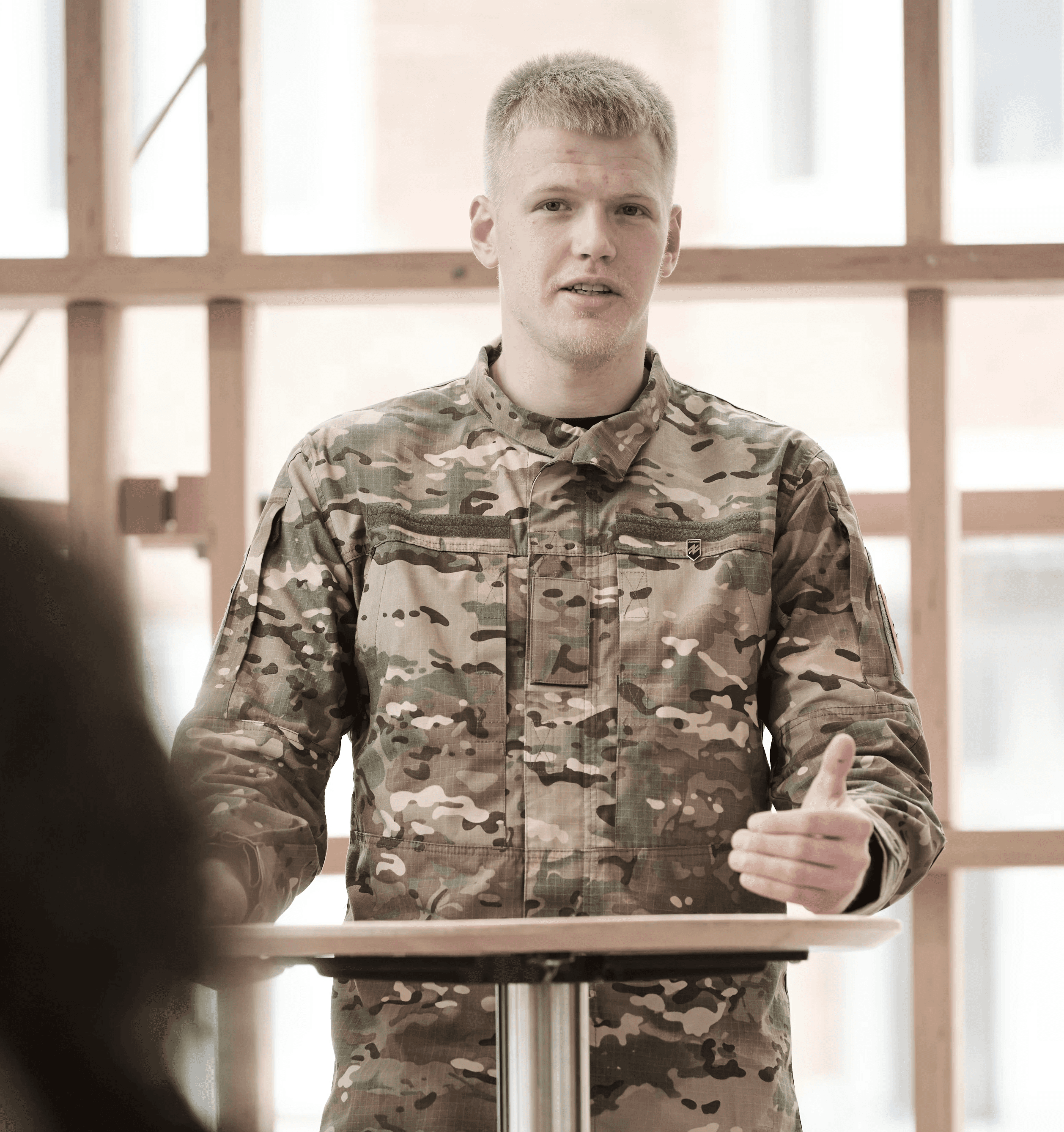News
An important conversation on human rights and the consequences of war
28 Feb 2025
I cannot think about my own future until my country’s future is safe.
These were the closing words of Ukrainian soldier and former prisoner of war, Dmytro Kanupier, whom NCG had the honor of hosting as the keynote speaker at this month’s Knowledge Sharing Thursday: An important conversation on human rights and the consequences of war.
As a consultancy working extensively with human rights and governance in fragile and conflict-affected settings — including ongoing and past engagements in Ukraine — this topic speaks directly to our core areas of work. We believe that listening to voices from the frontlines not only deepens our understanding of the realities we work within but also strengthens the relevance and integrity of our contributions.

Dmytro joined the military in 2020, becoming a machine gunner in a special reconnaissance unit. When Russia launched its full-scale invasion on 24 February 2022, Dmytro was deployed to defend the port city of Mariupol and its steel plant — an area widely predicted to be of strategic importance. A Russian victory there would secure a land passage between Crimea and Russia and strangle Ukraine’s economy by giving Moscow control of most of Ukraine’s Black Sea coastline, including key export hubs for steel, coal, and grain.
Unfortunately, those predictions proved correct. Within a week, Mariupol was encircled by Russian forces. Alongside 5,000 fellow Ukrainian soldiers, Dmytro was instructed to isolate the city by demolishing bridges and mining access roads. The Ukrainian resistance led to a brutal escalation in Russian bombardment, destroying over 90% of the city. Dmytro recalled the sound of screams from beneath the rubble — the cries of those buried alive — as among the worst memories during his recruitment.
In May 2022, the Ukrainian command ordered the surviving defenders to surrender, and Dmytro was taken to a Russian-controlled detention center in Taganrog. He described conditions reminiscent of Stalin’s Holodomor: months of extreme food deprivation and severe physical and psychological torture. The inhumane treatment led to forced confessions, part of Russia’s broader propaganda campaign to villainize Ukrainian soldiers — especially those from the Azov Regiment. In Dmytro’s case, he was sentenced to 29 years in a fabricated trial.
After two and a half years in captivity, Dmytro was finally freed in a prisoner exchange in October 2024. Since then, he has been in rehabilitation, preparing to return to the front line. As he made clear, he cannot afford to dream of a future for himself until his country’s freedom — and Europe’s borders — are secured. But before returning to the field, Dmytro is sharing his story, hoping that allied countries will continue to pressure Russia to uphold humanitarian law.
The first time I ever left Ukraine was when I was taken to Russia as a prisoner. The second time is now — here, in Denmark. I prefer Denmark!
We extend our heartfelt thanks to Dmytro for his courage, and for generously sharing such a difficult and deeply personal story. Also, a warm thank you to Lesia Ignatyk-Eriksen, Chairperson of Association of Ukrainians in Denmark and Founder of Help Ukrainian Children.
Follow NCG on LinkedIn to be notified of our next open Knowledge Sharing Thursday.
// Authored by Monika Ulrich
